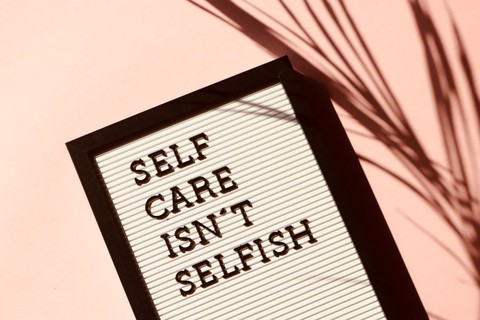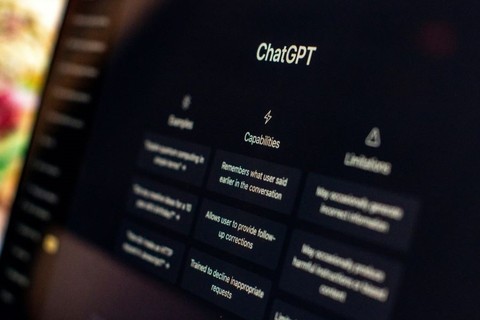We have succinctly outlined career guidance for graduate students. Click on each topic below to explore steps and advice on navigating one’s career path in both academia and industry.
-
+ Define Your Future Path
While graduate degrees are more focused, they can still lead to diverse career pathways. Since a variety of career options exist for students with advanced degrees, it’s essential for graduate students to determine a distinctive career path as pursuing a career in academia or industry involves a different process and preparation.
To make a career decision, you will need to understand your values and how are they aligned to certain work environments. You can explore your career path through the following options:
- Do some self-reflection on your personal development and career goals
- Get involved in your field and build a network to understand the field thoroughly
- Use online assessment and planning tools such as ImaginePhD (for scholars in humanities and social sciences) and The Versatile PhD
- Learn about a typical career path in your desired field through online information (e.g., Hello PhD)
- Talk with a career counselor about your interests and options
- Create an Individual Development Plan
If you are a master’s student, you might be wondering if you are going into the job market or advancing to a doctoral degree. The most common type of doctorate, a Ph.D., prepares students to contribute knowledge in a specialized area, hence it often leads to careers such as professor or researcher. However, this can look slightly different depending on your field. Find out the differences between masters and doctorates here.
-
+ Professional Development
Now that you have a clearer career path, it’s critical to develop competencies needed in your chosen field. The required skillsets will vary depending on the field, but most careers require interpersonal and technical skills.

Skill Development is critical for all graduate students. The Grad Essentials program aids in the holistic development of graduate students by providing comprehensive in-person and online professional development resources to enhance your MU Graduate School experience. Additionally, there are common skill sets desired among employers in both industry and academia:
The general workplace usually demands the following NACE career readiness competencies:
- Career & Self Development
- Communication
- Critical Thinking
- Equity & Inclusion
- Leadership
- Professionalism
- Teamwork
- Technology
On the other hand, academia involves a more specific set of competencies.Networking is an essential skill throughout your career development. Consult our Guide to Networking for advice on how to get started. Common ways to network:
- LinkedIn and social media are good tools to expand and maintain your network, especially those outside of Mizzou.
- Professional organizations offer networking opportunities through conferences and interactive events. It is also a good way to stay informed of current career opportunities.
- Campus resources such as the MU Career Center and Graduate School can be good ways to connect with employers and alumni.
Mentorship is simply engaging with role models for guidance which is invaluable for your career development. It’s essential to learn from someone with experience about strategies to succeed. Check out Mizzou Mentoring Network or find a mentor through your own contacts (other graduate students, advisors, other faculty mentors, etc.).You can specifically ask mentors to:
- Share insights about research and scholarly development.
- Give tips in all relevant areas of professional development including grant writing, written and oral communication skills, manuscript preparation, and teaching skills.
- Provide personalized career advising.
- Assist in job placement, including submission of letters of reference
Informational interviewing is another useful way to develop your knowledge about certain fields by talking to the people working in that area. It is an effective tool to get first-hand information about the position or organization that you might potentially work with. -
+ Job Search
The job search process takes time, so it’s wise to plan early. These days, job opportunities are commonly found through word of mouth as you network or on a company or career site.
Sources for Industry Jobs
- Campus Career Fair or employer virtual events on Handshake
- Company websites
- Career sites such as LinkedIn, Glassdoor, Vault, Indeed, Exploring Diverse Career Paths , PhDs at Work
- Network contacts such as alumni, professors, friends, and family
- Events such as conferences and workshops
- Professional Associations
Learn about the industry job search timeline to best prepare for the job search.
Sources for Academic Jobs
- Campus committee
- Conferences/conventions
- Professional associations and publications
- University websites
- Job search websites such as Handshake, LinkedIn, Indeed
- Higher education career sites: American Association of Community Colleges, Chronicle of Higher Education, Highered360.com, HigherEdJobs.com, Inside Higher Ed and University Job Bank.
Learn about the academic job search timeline to best prepare for the job search.
-
+ Applications & Interviews
Job Applications. After a thorough and meticulous job search process, you will have narrowed down your preferred jobs and are ready to apply for them. Job applications involve the preparation of necessary documents and employer communications.
An industry job usually requires a resume and cover letter while a faculty position will likely request more documents such as:
-
- Curriculum Vitae (CV)
- Cover letter
- Research statement
- Teaching statement
- Diversity statement
- Letters of recommendation
To learn how to best prepare these documents, reach out to the Graduate School and Writing Center for personalized advice.For students with a specific background (i.e., international student, LBGTQ students, etc.) that requires customized career guidance, be sure to check out other identity pages under the About Me tab on the Mizzou Career Tools page.
Interviews. As unnerving as it seems, an interview is an essential step as it provides both you and the employer the chance to know each other and determine if you’re the right fit for the position. Check out Acing the Industry Interview and Acing the Academic Interview for helpful tips and advice.
We also encourage you to use Big Interview, a web-based program that combines training and practice to help improve your interview technique and build your confidence. You can record, share, and rate your recorded interview responses and watch tutorial videos for tips and advice on how to build interview skills.
-














